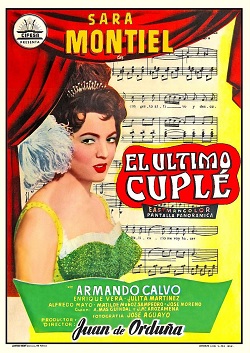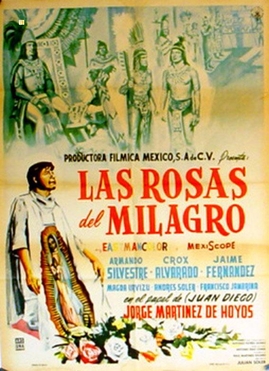Premio Nadal is a Spanish literary prize awarded annually by the publishing house Ediciones Destino, part of Planeta. It has been awarded every year on 6 January since 1944. The Josep Pla Award for Catalan literature is given at the same ceremony.

José Pascual Antonio Aguilar Márquez Barraza, known as Antonio Aguilar, was a Mexican singer and actor. He recorded over 150 albums, which sold 25 million copies, and acted in more than 120 films. He was given the honorific nickname "El Charro de México" because he is credited with popularizing the Mexican equestrian sport la charrería to international audiences.

The LVI Legislature of the Congress of the Union of Mexico met from 1994 to 1997.
The 1963 CONCACAF Championship was the first edition of the CONCACAF Championship, the football championship of North America, Central America and the Caribbean (CONCACAF). The tournament was held between 23 March to 7 April. Nine teams participated in the inaugural event.
Life Begins at Midnight is a 1944 Spanish comedy film written and directed by Juan de Orduña and starring Marta Santaolalla, Armando Calvo and Julia Lajos.

Armando Calvo was a Puerto Rican-born Spanish actor. His father was Juan Calvo Domenech, a Spanish actor and his mother was Minerva Lespier, a Puerto Rican. Calvo worked in Spain, Italy, and Mexico appearing in ninety films between 1939 and 1984.

El revólver sangriento is a 1964 Mexican western-drama film directed by Miguel M. Delgado, and starring Luis Aguilar, Lola Beltrán, Flor Silvestre, Emilio Fernández, Manuel Capetillo, Antonio Aguilar, and Irma Dorantes, as credited in the film's theatrical posters. The lead actors were credited in an unusual "rigorous appearance on the screen" style, where the film's main characters are not ordered by importance, but by on-screen appearance. Written for the screen by Alfredo Salazar, the film was a production of Cinematográfica Calderón and follows the account of a silver-plated revolver, which has a deadly curse and falls on the hands of different men.

Guillermina Jiménez Chabolla known professionally as Flor Silvestre, was a Mexican singer and actress. She was one of the most prominent and successful performers of Mexican and Latin American music, and was a star of classic Mexican films during the Golden Age of Mexican cinema. Her more than 70-year career included stage productions, radio programs, records, films, television programs, comics and rodeo shows.

María Victoria Ledesma Cuevas, known by her stage name Rosa de Castilla, was a Mexican singer and actress. She is noted as one of the great folkloric leading ladies of the "golden age" of Mexican cinema. In the musical field, she has toured the world singing in countries such as Israel.

Caballo prieto azabache (La tumba de Villa) is a 1968 Mexican historical drama film starring Antonio Aguilar, Flor Silvestre, and Jaime Fernández. It focuses on a horse breeder named Jesús who is set on buying a horse known as "Caballo prieto" (dark horse) and pursuing a relationship with a singer named Genoveva Alarios. With he and Genoveva eventually recruited as spies for the revolutionary leader Pancho Villa. The film was successful at the box-office and stayed in theaters for a surprising nine weeks.
Un rostro en mi pasado is a Mexican telenovela produced by Ernesto Alonso for Televisa in 1989. Based on the Mexican telenovela produced in 1960 Un rostro en el pasado.
Cicatrices del alma is a Mexican telenovela produced by Eugenio Cobo for Televisa in 1986. It is an original story by Lindy Giacoman and adapted by Eric Vonn and Liliana Abud. It starred Norma Herrera, Germán Robles, Gregorio Casal, Rebeca Rambal and José Elías Moreno Jr.
Irma Gloria Ochoa Salinas, commonly known as Lucha Moreno, is a Mexican singer and actress.

Made for Each Other is a 1953 Mexican musical comedy film directed by Rogelio A. González and starring Jorge Negrete, María Elena Marqués and Luis Aguilar.

The Last Torch Song, better known under its Spanish title El último cuplé, is a 1957 Spanish jukebox musical film directed by Juan de Orduña and starring Sara Montiel, Armando Calvo and Enrique Vera.

The Miracle Roses is a 1960 Mexican historical drama film directed by Julián Soler and starring Armando Silvestre, Crox Alvarado, and Jaime Fernández. It is set around the time of the Spanish conquest of the Aztec Empire.

The Second Woman is a 1953 Mexican drama film directed by José Díaz Morales and starring Rosa Carmina, Antonio Aguilar and Freddy Fernández. The film's sets were designed by the art director Ramón Rodríguez Granada.
María José "Majo" Aguilar Carrillo is a Mexican singer and songwriter. She is currently signed to Universal Music Group.









